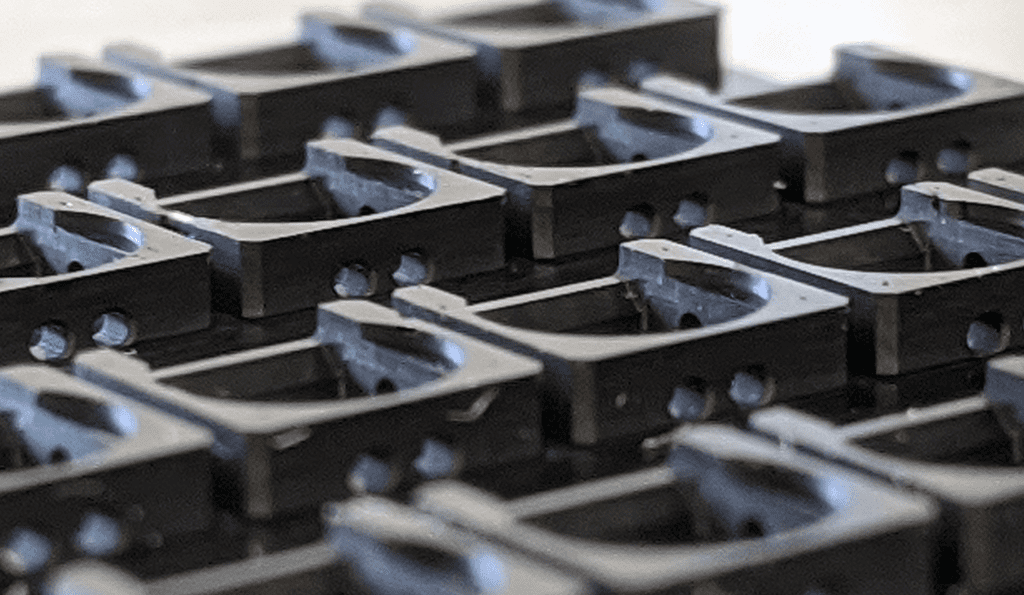
Unispectral, an Israeli Samsung-backed company, is an important player in the IR inspection market, producing miniature tunable Near Infrared (NIR) filters for camera systems to give them biometric authentication capabilities. Unispectral’s technology is used for many applications, including camera-based material detection, object classification, bank note and documentation identification, product defect identification, facial authentication and more. In addition to its NIR filter capabilities, part of Unispectral’s success in the market is that its products are on the lower end of the cost spectrum, thanks in part to its use of additive manufacturing.
Unispectral’s NIR technology integrates a tunable Fabry-Pérot filter that is made using Micro-Electro-Mechanical Systems (MEMS). The use of this filter has enabled the company to “democratize hyperspectral imaging”, embedding it in various types of mobile phones. However, in order to adapt the filter to different image sensors in smartphone devices, the company has had to develop a proprietary adapter for the camera barrel, with tolerances of 10 microns.
Initially, Unispectral relied on injection molding to produce the adapters, which required significant time and cost investments (for tooling specifically). Now, however, the company has transitioned to a more economic production method for the adapters: Nanofabrica’s micro 3D printing solution, specifically the Tera 250 machine. Nanofabrica’s technology combines a DLP engine with adaptive optics to achieve micron-level resolution. Its Tera 250 system is also equipped with various sensors, enabling a closed feedback loop and is compatible with the company’s proprietary materials.
“Nanofabrica is not only able to achieve [the] 10-micron tolerances that are required, but batches of hundreds of adaptors can be made in 6 hours,” said Peleg Levin, CTO at Unispectral. “In the mobile phone market we have each year very rapid changes and development so we need to adapt quickly, iterate, adjust the design, and with the help of Nanofabrica’s technology we are able to adapt rapidly to various camera model designs. Since we intend to embed our device in mobile phones we are talking about millions of parts per year. We see that with Nanofabrica we can reach these numbers easily.”
In addition to achieving mass production rates using the 3D printing technology, Unispectral is also benefiting from the ability to quickly test out and implement new designs to accommodate new mobile phones. An existing adapter design can be tweaked to fit a different mobile device, validated and mass produced all without having to invest in tooling.
“We are excited about the results we have achieved with Unispectral,” added Jon Donner, CEO of Nanofabrica. “It is our feeling that as a general rule of thumb, for 3D printing to be used as a rapid manufacturing technology for any given application it will have to have demonstrate at a minimum a 10-fold improvement in cost and/or time savings to offset the cost and risk associated with changing over from a traditional manufacturing technology. For Unispectral this is absolutely the case, and proves that for them, 3D printing is a clear and efficient alternative to traditional manufacturing processes today.”
Bengaluru, India – January 19, 2026 – Lodestar3D, a premier provider of advanced manufacturing solutions…
Lodestar3D, a prominent distributor of industrial 3D printing solutions in India, has announced the successful…
The International Advanced Research Centre for Powder Metallurgy and New Materials (ARCI) has signed a…
Since his postdoctoral days at MIT, Hang Yu, associate professor of materials science and engineering,…
Amritsar-based Amandeep Hospitals, in collaboration with Ujala Cygnus, has inaugurated North India’s first hospital-based 3D Printing and Virtual…
Engineers at The University of Texas at Austin are leading an academic and industry all-star…
This website uses cookies.